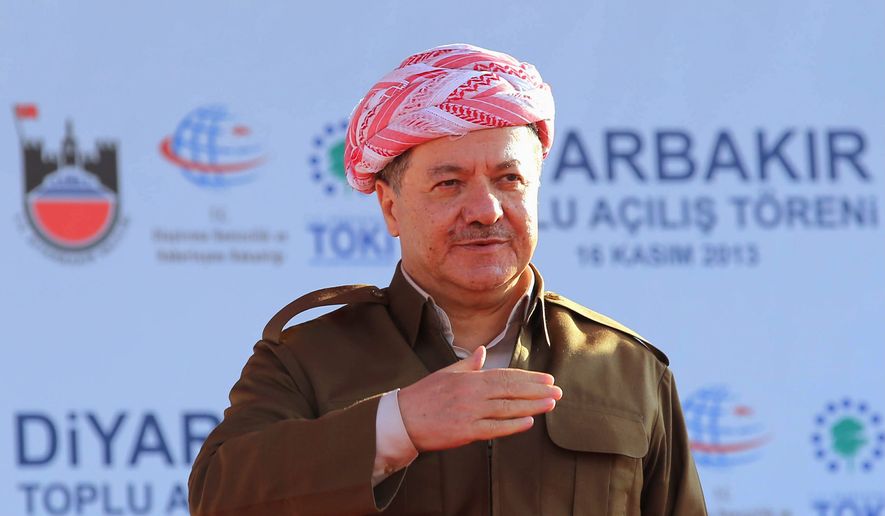Residing at the intersection of Turkey, Iran, Iraq and Syria, the Kurds are the world’s largest ethnicity without a country, subjugated by the most repressive countries of the 21st century.
The Treaty of Lausanne, marking the end of World War I, shattered hopes of a Kurdish state. Overnight, the Kurds were left with no homeland, subjected to the oppressive policies of the very countries that to this day deny their very right to exist.
The Kurdish fight for self-determination is a struggle that unites Kurds across four different countries with a diaspora that is spread across several continents. To be a Kurd is to defy the regime in which you were born by preserving your identity at all costs. This is why Kurds call themselves peshmerga, or “those who face death” because Kurds would willingly face death rather than surrender themselves to assimilate to a country they never chose to be a part of in the first place.
In spite of these obstacles the Kurds have made substantial progress both politically and economically in Iraq, Syria and Turkey. They have also strengthened their relations with the West as the world’s strongest line of defense in the fight against the Islamic State. It is because of this progress, however, that the world is again witnessing the governments of Iraq, Iran, Syria and Turkey revert to the methods of violence and manipulation that so effectively hindered Kurdish self determination in the past.
The chaos in the region caused by the Islamic State group, and the rebellion against the Syrian government has allowed Kurdish forces to take back the predominantly Kurdish cities and villages of their historic homeland. This advancement has caused an uproar in Ankara, Tehran and Baghdad, as the prospect of a Kurdish state becomes more attainable. Such a state is seen as a threat to the national sovereignties of these aforementioned countries prompting enhanced aggression towards Kurdish minorities in all four fragments of Kurdistan. This has propelled Kurds across the Middle East to unite on the battlefield and collaborate economically through the sale of crude oil. It is not only their identity at stake but their very survival in a region on the verge of a sectarian war.
Taking this country by country:
In Turkey, the ruling Justice & Development Party, also known as the AK Party, has been accused of aiding jihadi terrorists to undermine Kurdish gains in Syria. In addition, the AK party recently ended its 3-year ceasefire with the Kurdistan Workers Party, the PKK, and denounced the People’s Protection Units, a predominantly Kurdish group, as more dangerous than the Islamic State. Both groups have been major players in the fight against the Islamist militants.
Turkish President Recep Tayyip Erdogan arrested hundreds of civilians nationwide, specifically Kurdish activists and politicians connected to the pro-Kurdish People’s Democratic Party (HDP) after the HDP gained more than 10 percent of the threshold vote needed to enter Parliament as a party for the first time. This threshold had been purposefully designed to prevent a Kurdish voice within parliament. Mr. Erdogan skillfully ended the peace process with the PKK to evoke Turkish nationalism with the hopes of winning the ultra-nationalist vote, another tactic used to quell the Kurdish voice.
In Iraq, Baghdad is waging what could be considered a cold war against the Kurds by cutting the annual budget of the Kurdistan Regional Government. In addition, Baghdad has prevented the flow of U.S. weapons designated for the KRG leaving the Kurds to defend the 1,050-kilometer frontline against the Islamic State with Soviet-era weapons. Baghdad’s policy towards the KRG is in violation of the Iraqi constitution and a clear indication of how Iraq continues to subjugate the Kurds. Baghdad’s policy towards its Sunni population was similarly cruel; the Sunni isolation plus Baghdad’s inability to defend its own sovereignty from the Islamic State resulted in the abandonment of the Iraqi military and the fractured unity of Iraq as a country. Iraqi Kurdistan, with its limited resources, is essentially left to fight the Islamic State alone while taking in over 2 million IDPs and refugees. Iraqi Kurdistan has attempted to stabilize the region and fund its defense through its sale of crude. Baghdad’s repeated use of legal injunctions to interfere in the process only further substantiates the Kurdish claim of subjugation.
To date, Iran exercises the most oppressive policies against its Kurdish population. Kurds have no constitutional rights in Iran. Every attempt to establish Kurdish representation within Iran has lead to the death and disappearance of prominent Kurdish political figures and activists. Islamic State gains in Iraq have opened the door for the Iranian military to intervene on behalf of the Shia population while settling in disputed areas inside Iraq and near the borders of the KRG. As if its oppressive policies towards the Kurds were not bad enough within its own country, Iran can also be seen as a direct threat to the sovereignty of the KRG.
Today, the Kurds are amongst the most progressive and democratic people in the Middle East. A century of subjugation has compelled the Kurds to implement democracy beyond the criteria of race, ethnicity, race or gender.
Partitioned into four other countries, the Kurds were expected to assimilate and relinquish their own identity through varying policies of subjugation. Fortunately for my people, our spirit and nationalism could never be subjugated to such a degree. We should be viewed as a model of stability in a very unstable region rather than a threat to the national sovereignties of the countries in which we reside. Like any other ethnicity in the world, we deserve a homeland of our own. Given today’s geopolitical climate in the Middle East its due time we reconsider the artificial borders that have separated my people and instead create countries based on natural borders of identity.
• Hemin Qazi is director of business development for Kurdistan 24 News.




Please read our comment policy before commenting.